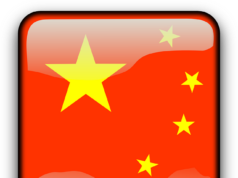The ministry said it cracked down on 28 cases in which online ghostwriters were hired to post slanderous content and arrested 67 people.
Over 80 companies and organizations were blackmailed. Some suspects, under the claim of „legal and social surveillance“, have organized extensive actions regarding paid comments or posts on social media platforms such as Sina Weibo and WeChat, which have approximately 400 million and 1 billion active users each month, China Central Television (CCTV ). They also provided services, including paid public activities and the deletion of online content, to influence public opinion. In a statement, the MPS accused the suspects of extortion, fraud, illegal business, causing unrest, slander and personal information breaches, Xinhua reports. Some suspects have been sentenced to prison, others face trial and the rest are being investigated.
Zhu Wei, a professor at the China University of Political Science and Law, said it was a good start to normalize the legal regulation of cyberspace activities. Such activity would have seriously harmed the right of Internet users to knowledgeable and legitimate merchant management, Zhu told Global Times. Buyers of services that promote the black market chain would also have to be punished. Chinese authorities, including law enforcement agencies and market regulators, should work together to combat similar crimes on the Internet, Zhu said.
The Cyberspace Administration of China (CAC), the country’s Internet affairs agency, has praised a thorough cleanup of self-media publishing rumored and malicious content. As part of a campaign that began in late October, more than 9,800 self-media accounts were closed or punished. The CAC met with media platforms such as Baidu, Tencent, Sina, and Jinri Toutiao and urged them to seriously regulate the self-media on their platforms.



